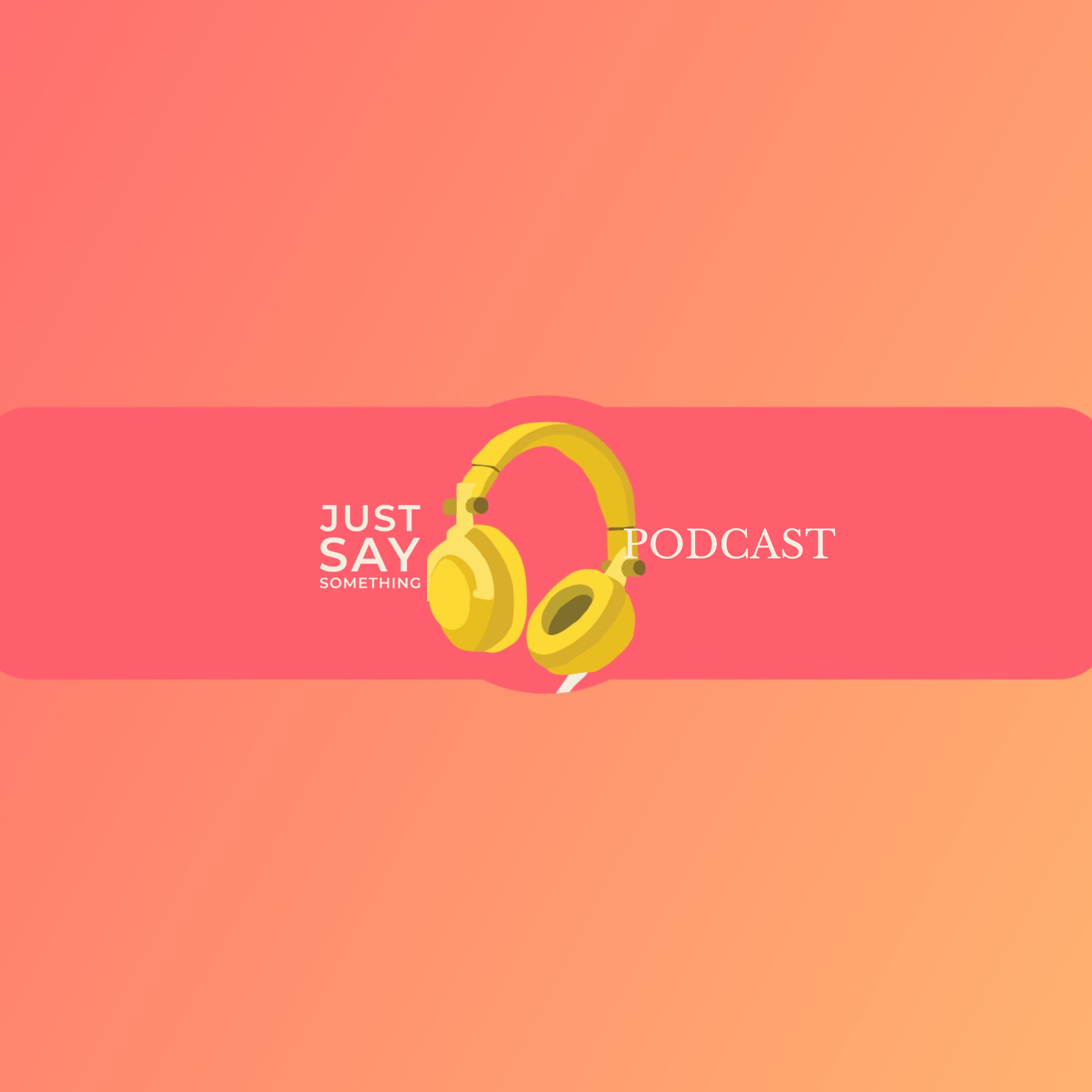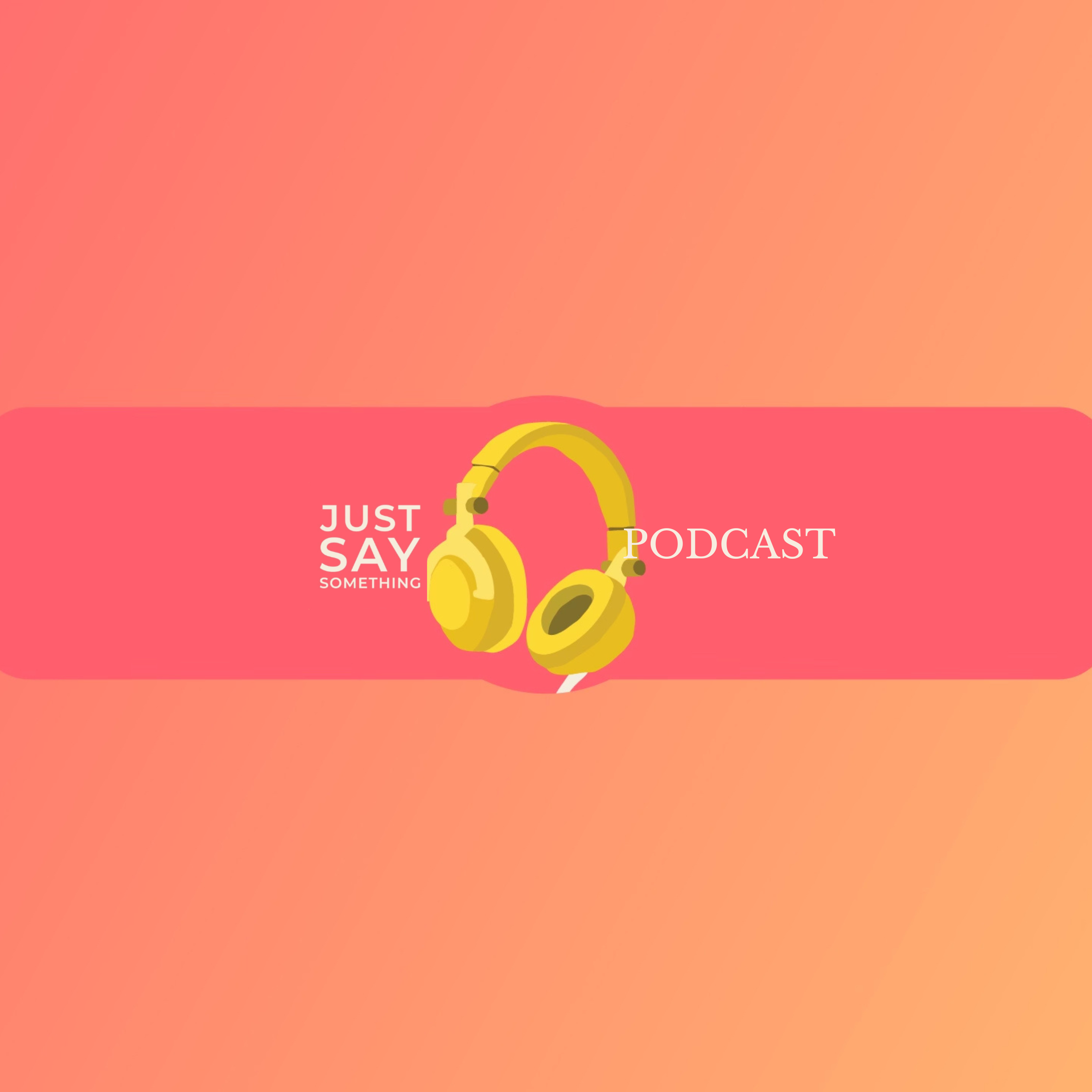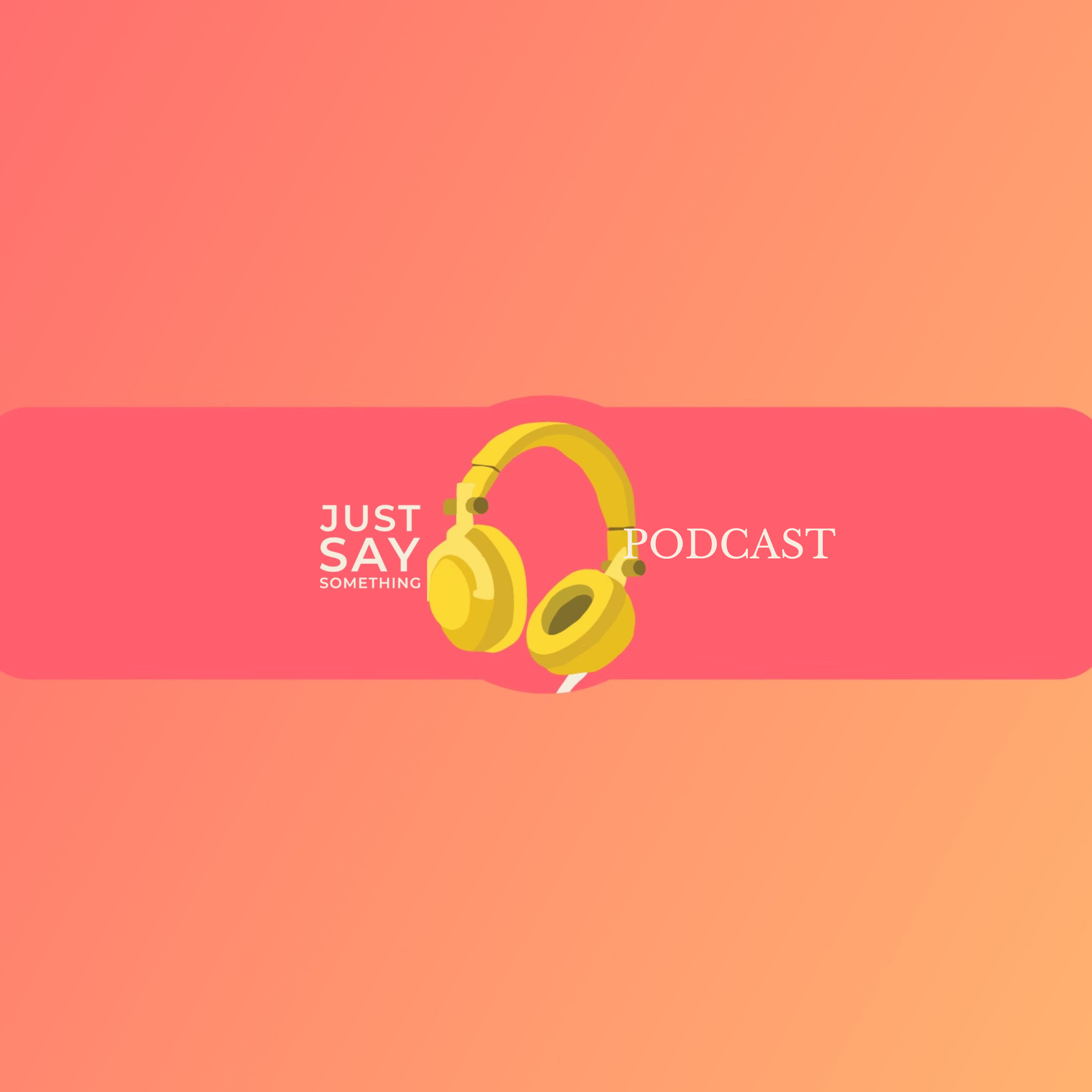Episode Transcript
[00:00:07] Speaker A: Just say something is here as a.
[00:00:10] Speaker B: Resource for parents in the community to learn new skills to help mitigate some.
[00:00:19] Speaker A: Of the issues that are going on at home.
[00:00:23] Speaker B: And so today is part two of four, part series of our four parenting programs.
[00:00:34] Speaker A: Again, we offer them both in English and in Spanish.
And so last week, we learned a little bit about parenting wisely from our.
[00:00:45] Speaker B: Parenting coordinator, Lynn Hooper.
Today, you really don't want to miss this one, especially if you have teenagers.
[00:00:54] Speaker A: We're going to talk about our program back in control.
So once again, I'm excited to have.
[00:01:01] Speaker B: Lynn Hooper back with us today.
[00:01:04] Speaker A: Again, she is the director of our.
[00:01:06] Speaker B: Parenting programs here at just say something. And Lynn has built just say something.
[00:01:15] Speaker A: As a force in Greenville county, the.
[00:01:19] Speaker B: Upstate and in South Carolina for our parenting programs. We do have a awesome reputation of.
[00:01:28] Speaker A: Our programs and the outcomes that we're.
[00:01:30] Speaker B: Able to get from the families that participate. And it's all due to the work that Lynn has done since she's been with us for, I'm not going to say how long, Lynn, but for a while.
So with that, Lynn, I want to thank you and welcome you back to Today's podcast.
And then let's get right into it.
Talk a little bit about or for.
[00:02:05] Speaker A: Today about back in control.
[00:02:07] Speaker B: And again, this is our second of our four major parenting programs.
[00:02:14] Speaker A: So, Lynn, give us again, welcome back and give us a brief overview of.
[00:02:20] Speaker B: Our back in control program.
[00:02:24] Speaker C: Back in control is for parents of adolescents and teenagers back in control. I've been doing back in control here.
[00:02:34] Speaker D: At just say something for probably 20.
[00:02:38] Speaker C: Years and how we got into back in control. And that back in control stands for back in control of your child's behavior and how we got started in that. Years ago when Dale Chandler was the.
[00:02:53] Speaker D: Director of juvenile justice, I met with.
[00:02:56] Speaker C: Him and we talked a lot about parenting.
[00:03:00] Speaker D: And they were doing something at juvenile.
[00:03:03] Speaker C: Justice in back in control, but they.
[00:03:06] Speaker D: Did not have a drug component in their program.
[00:03:12] Speaker C: So with the director here and myself and Dale Chandler, we realized the importance of that. And I went to Columbia and sat.
[00:03:21] Speaker D: Through a training and we added drug.
[00:03:25] Speaker C: Component because what we do know is.
[00:03:29] Speaker D: That this is when you really need.
[00:03:32] Speaker C: To know about what your kids are doing.
[00:03:35] Speaker D: Those teen years are really crucial in helping your child stay drug free.
[00:03:44] Speaker C: And boy, do we know that today with vaping, how much vaping there is going on. And we know it's a gateway drug and we know how it leads to other things.
[00:03:53] Speaker D: And so having that part in the.
[00:03:57] Speaker C: Back end control program has really.
[00:04:03] Speaker D: Made.
[00:04:03] Speaker C: A big difference with parents I would have to say in all the years of the parenting classes that I do back in control is probably my favorite because it is a skill building class.
[00:04:16] Speaker D: And we start with and build skills that will definitely help parents to raise drug free kids and give parents skills.
[00:04:31] Speaker C: That will help them know how to.
[00:04:34] Speaker D: Do this and how they can know how important it is to know where these kids are, to give them the.
[00:04:44] Speaker C: Information they need to help them. And we offer a lot of resources here at just say something. So I want to share with you some of the skills that we do teach in that class. You want me to go ahead with that now, Phil? Okay, we start with the social development strategy. Social development strategy is what we call opportunities that you give your child. And from giving them opportunities and helping them learn skills and giving them a lot of praise, then you begin to.
[00:05:20] Speaker D: Build kind of like building a tree. That's kind of what we call it. And the trunk of that tree is the parent. And if you are not there while.
[00:05:33] Speaker C: These kids are in these crucial ages.
[00:05:36] Speaker D: Then they are not going get the skills that they need to help them to grow up and be good teenagers. So we help them by giving them opportunities.
[00:05:51] Speaker C: And I show them how all these.
[00:05:53] Speaker D: Skills are done.
[00:05:56] Speaker C: How important it is to teach them the skills and how.
[00:05:59] Speaker D: Important it is to give these kids.
[00:06:01] Speaker C: A lot of praise. Because I have to tell you, when they're young, it's really easy to praise these kids.
[00:06:08] Speaker D: But as they get older and they.
[00:06:10] Speaker C: Begin to develop their own personality and.
[00:06:14] Speaker D: Begin to come into their self, sometimes.
[00:06:18] Speaker C: They'Re not as lovable as we would like them to be. And sometimes it gets hard for parents. So giving them skills and helping them to understand how important it is for.
[00:06:31] Speaker D: Them just to be there for those kids.
[00:06:34] Speaker C: And then with that, we help them understand, you got to have rules in your home.
[00:06:40] Speaker D: For these kids, where there are no.
[00:06:42] Speaker C: Rules, there is chaos. So we spend a lot of times helping them learn how to write a.
[00:06:49] Speaker D: Rule, how the importance of knowing the.
[00:06:53] Speaker C: Kid has to know what to do, when to do it, and how often.
Then we work really hard on helping parents understand.
[00:07:01] Speaker D: You are the key in helping these kids obey rules.
[00:07:06] Speaker C: And the way you do that, you've got to follow through.
And there are many, many different ways to follow through. So we look at that and we look at the parents own attitude about raising their children and helping them know.
[00:07:20] Speaker D: How to follow through.
[00:07:22] Speaker C: Sometimes you just got to check on your kids when they're obeying a rule or doing a chore or whatever.
[00:07:28] Speaker D: Sometimes you got to stand over them. Sometimes you got to just put your.
[00:07:34] Speaker C: Hand in theirs and make them do something. But anyway, we spend a lot of time on that, and then we really talk about putting consequences in place. And consequences is a really big deal. But when you use consequences, you do.
[00:07:49] Speaker D: Not have to scream and holler at your kids.
[00:07:51] Speaker C: You do not have to hit or.
[00:07:54] Speaker D: Beat on these kids. And you really can help your kids.
[00:07:58] Speaker C: When they know that they have to.
[00:08:00] Speaker D: Obey your rules because there is a.
[00:08:03] Speaker C: Consequence for not doing that. So we spend a lot of time on that. We spend a lot of time helping parents teach responsibility, holding your kids accountable.
[00:08:16] Speaker D: For what they do, not letting them.
[00:08:20] Speaker C: Get by with things, how important that is to handle situations when they happen, and use good consequences. So they learn, I have to obey my mom and dad or my mom or whoever the caregiver is in the home for that child. And then we spend some time on knowing their values and helping their kids know what their values are in life. And we do a big activity on that. We do another activity and activities, help parents learn. We do another big activity on knowing who their friends are.
[00:08:55] Speaker D: And how important is that?
[00:08:57] Speaker C: And that is very important because what.
[00:09:01] Speaker D: We know and what statistics show, a.
[00:09:05] Speaker C: Lot of times when kids get to.
[00:09:08] Speaker D: Having friends and they've got to have.
[00:09:10] Speaker C: Friends, certainly they need a social life, but you don't throw them to the.
[00:09:14] Speaker D: Wind at 13 years old and let.
[00:09:17] Speaker C: Them do anything they please. You've got to have a balance between friends and family. So we try to help parents know that, and we work real hard on helping them know who their friends are and how important that is.
[00:09:31] Speaker D: And we do a big activity on that.
[00:09:34] Speaker C: Then we really delve into family meetings. I talked a little bit about how.
[00:09:38] Speaker D: We begin to help parents with young.
[00:09:40] Speaker C: Children understand the importance of that.
[00:09:43] Speaker D: But we really practice family meetings and.
[00:09:47] Speaker C: The importance of family meetings, having an agenda and all that kind of stuff, and making your kids come to family meetings.
[00:09:54] Speaker D: So we work on that, and then we help with parents to know what.
[00:09:59] Speaker C: Their values are and help these kids with good values. And in all of that, we cover.
[00:10:05] Speaker D: Three important drugs that parents need to know about that their kids already know, especially learning them from people in school.
[00:10:15] Speaker C: We talk about smoking and vaping. We talk a lot about marijuana.
[00:10:20] Speaker D: Facts every parent needs to know about marijuana.
[00:10:24] Speaker C: We talk about alcohol, and we know that is the drug of choice among our young people.
[00:10:29] Speaker D: So we talk a lot about that.
[00:10:31] Speaker C: And we help parents. We educate parents about these drugs and how important it is for them to know all these things where they can.
[00:10:41] Speaker D: Help keep their kid drug free.
[00:10:44] Speaker C: And that's prevention is the key.
[00:10:46] Speaker D: And that's what we try to help parents in this back and control class.
[00:10:52] Speaker B: All right, well, boy, that's a lot.
[00:10:55] Speaker A: And so I guess that's another reason.
[00:10:58] Speaker B: Why this program back in control is six weeks instead of like we learned.
[00:11:04] Speaker A: Last week, our parenting wisely program is five weeks.
[00:11:09] Speaker B: So for our listening audience out there, again, since we are in Greenville county.
[00:11:17] Speaker A: That all of our programs for Greenville.
[00:11:20] Speaker B: County residents are free.
[00:11:23] Speaker A: And so if you are outside of.
[00:11:26] Speaker B: Greenville, you can definitely still participate, but.
[00:11:30] Speaker A: You need to call directly and talk.
[00:11:33] Speaker B: With Lynn and to work out that.
But again, just as with parent and wisely, if you would like to participate in back in control, you can call us at area code 86461. I was about to give out my cell phone, area code 864-467-4099 or if.
[00:12:02] Speaker A: You want to register, you can go.
[00:12:04] Speaker B: To our website at just saysomething sc.org.
[00:12:10] Speaker A: And there's a button on there that.
[00:12:13] Speaker B: Says register for parenting program. And so once you fill that form out, someone will call you back with the schedules and time and all that.
[00:12:24] Speaker A: Pertinent information that you do need to know.
Well, Lynn, as we bring this particular.
[00:12:32] Speaker B: Segment to a close, is there a story out there that you have that you can share with our listeners from a family, parents or caregiver directly related to their attending your class?
[00:12:50] Speaker C: Absolutely. I can. One of the stories that stands out to me that I would like to share in one of the classes we.
[00:12:58] Speaker D: Do an activity where parents practice having.
[00:13:02] Speaker C: Conversation with their kids about things that are important in their family. So in a particular situation, one Monday night, we were having a conversation, and how we do that is we let one parent be the parent and another parent in the class is the child, and we give them a topic to have a conversation about that's important to their family. So this particular man that I gave, he was the father, and a person sitting next to him acted as the child, and I gave them the conversation that they needed to talk about and what it was. What their conversation was. How young should you let your teenager date?
[00:13:51] Speaker D: And how important was it for them.
[00:13:54] Speaker C: To date people their own age and not go out?
[00:13:59] Speaker D: Because for a 15 year old kid.
[00:14:02] Speaker C: That'S just beginning to date, dating an 18 or 19 or 20 year old, that's just way too much. And no parent should allow that. So he had the conversation with the other parent in there about his daughter dating someone older. And I never will forget. And of course, we lead that conversation and we kind of help we give the skills on the different way you need to handle that with your kids. But I never will forget, the next week he came into the class and he said, I have just got to tell you something. The very conversation I had Monday night, I had to have that real conversation.
[00:14:44] Speaker D: With my daughter that last weekend.
[00:14:48] Speaker C: And he said it was amazing because I was prepared. And the conversation went like, she lives with her mom and I get her every other week. And when she came to stay with me, her mom had called me and.
[00:15:04] Speaker D: Told me that she was having a.
[00:15:06] Speaker C: Talk with her and was really concerned about the fact that she wanted to.
[00:15:10] Speaker D: Date a much older guy. So he said, boy, was I really.
[00:15:14] Speaker C: Prepared when she came to my house for that conversation because I had just had it in that class.
[00:15:20] Speaker D: And I will tell you, it kept.
[00:15:23] Speaker C: Me from getting mad and going off on her and telling her she would never be allowed to date anybody that age. And it helped me to handle it.
[00:15:32] Speaker D: In a way that she really understood.
So that's my story for that one.
[00:15:38] Speaker A: That's an awesome story, and thank you for sharing that.
[00:15:41] Speaker B: Lynn. Well, folks, I want to wrap this up. Next week, we will be diving into our parenting program transparenting, which is for families that are having divorce or some type of family issue, whether it's a loss of a loved one or some type of major change within that family. So you definitely don't want to miss that.
Again, Lynn, thank you for being here this week and talking to us about back in control program.
And folks, again, this is week two of a four week series that covers all of our parenting programs. So we've reviewed parenting wisely and now back in control.
And so join us next week as we talk about our third and our third in the series, transparency.


